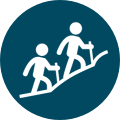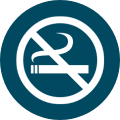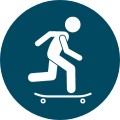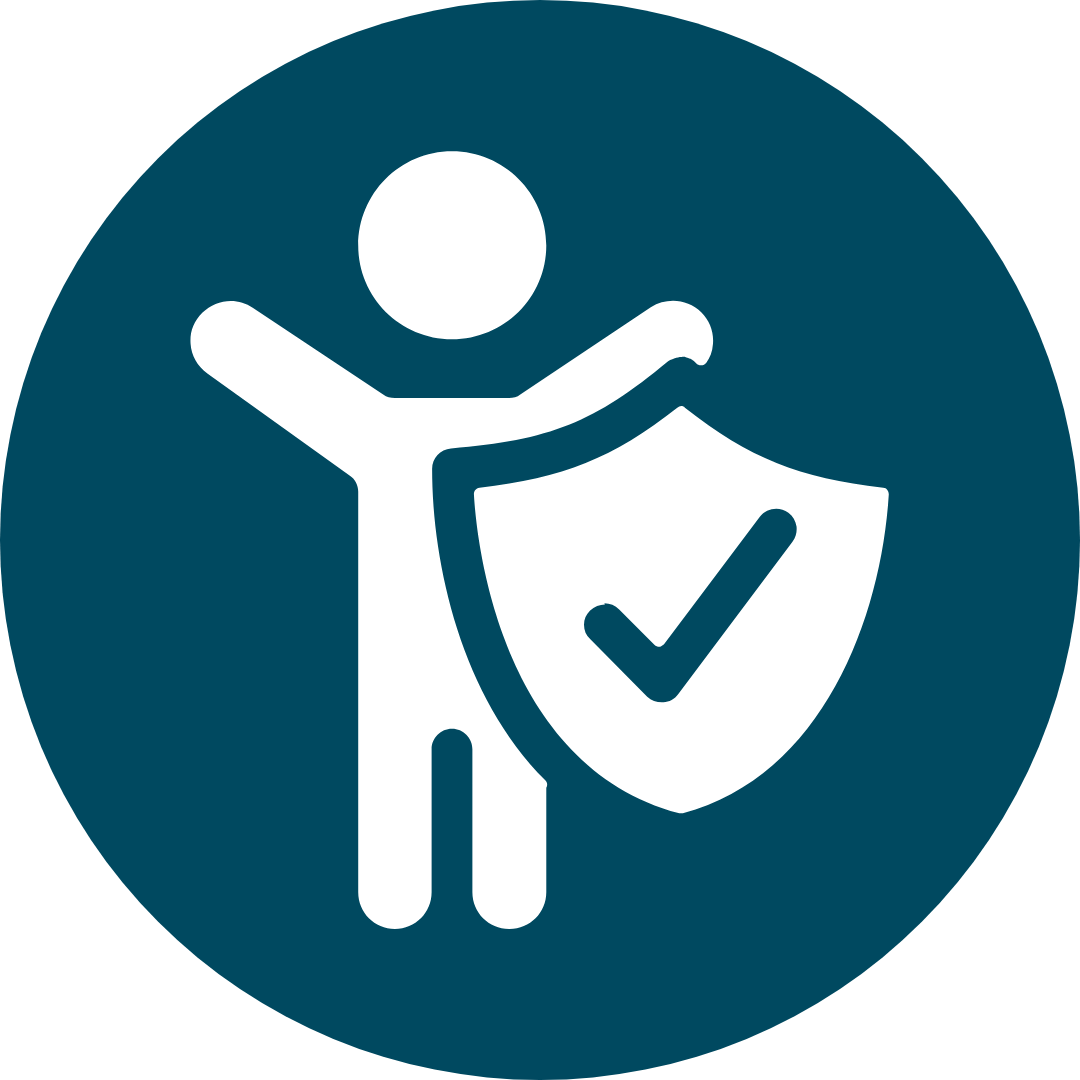
Our vision:
A safe and healthy Kitsap County for all.
Cannabis (Marijuana) FAQs
In 2012, Washington state made recreational cannabis (marijuana) legal for people 21 years and older.
We hope this page helps you understand health risks related to cannabis and why it’s especially important for youth to avoid using cannabis.
Click on a frequently asked question below to learn more.

What is cannabis?
Cannabis is a plant that is grown for recreational and medical purposes. The plant contains many different compounds. The biggest being CBD (cannabidiol) and THC (tetrahydrocannabinol).
CBD:
Does not give you a high
Often used for medical reasons, such as managing pain, reducing seizures, and helping with anxiety
THC:
Does give you a high by interacting with your brain
Can change your perception, mood, consciousness, and behavior
Used mostly recreationally
What do people call cannabis?
People call cannabis a lot of different names. Here are a few:
Marijuana
Weed
Pot
Bud
Grass
Reefer
Ganja
Mary Jane
Blunt
Joint
Green
Dank
Flower
Herb
Broccoli
Loud
Is cannabis legal?
It is illegal to use cannabis before age 21 in Washington state.
If you use or possess cannabis before you are 21, you can face a ‘minor in possession’ charge. If you are charged, you might:
Pay fines
Do community service
Take classes
Have your driver’s license taken away
Be taken out of your school’s sport team or club.
Retail stores can lose their license if they sell cannabis to someone under 21.
Adults (including parents) who give cannabis to anyone under 21 can face criminal charges.
At any age, it is illegal to operate a motor vehicle while under the influence of cannabis.
Is cannabis unhealthy?
Cannabis can have many health effects.
Short term:
The short-term effects of cannabis vary from person-to-person. The strength, amount, and how often cannabis is used affects how severe the symptoms will be.
Dizziness
Mood changes
Impaired memory
Disorientation
Sleepiness
Coordination issues
Altered senses
Nausea
Dry mouth
Increased heart rate
Hunger
Anxiety
Long-term:
Research on the long-term effects of cannabis is ongoing, but it is finding that cannabis may be connected to these long-term health effects:
Increased risk of developing mental health disorders
Schizophrenia
Depression
Social anxiety
Decreased lung health from smoking and vaping
Decreased heart health from smoking and vaping
Cannabis Hyperemesis Syndrome (frequent and sever vomiting)
Risks to brain development
The younger a person is when starting cannabis use, the more likely they will have health and development problems.
How strong is cannabis?
Cannabis keeps getting stronger.
From the 1990’s - 2022, the average strength of cannabis has risen from 5% to 21%.
The average strength of cannabis concentrates (products extracted from the cannabis plant) is 69%.
Cannabis with a higher strength is more likely to cause negative long-term mental health effects - especially when used by youth.
Can you get addicted to cannabis?
Cannabis can be addictive.
Cannabis Use Disorder (CUD) is estimated to affect 3 in 10 people who use cannabis. CUD is more likely to happen when you start using strong cannabis often at a young age. You may be struggling with CUD if you:
Are struggling to stop cannabis use.
Are losing interest in activities you used to enjoy.
Don’t want to spend time with friends or family anymore.
Try to stop cannabis but find yourself craving cannabis, moody, and restless.
Can you overdose on cannabis?
There is no known reported case of a cannabis-only fatal overdose. However, cannabis can cause negative short- and long-term health effects.
Is it safe to use cannabis when you're young?
Research is finding that using cannabis as a young person can increases the risk of long-term health problems and effects brain development.
The younger you are when you use cannabis, the more likely you are to develop Cannabis Use Disorder (CUD). The health effects of cannabis will follow you throughout your life - avoid using cannabis to set yourself up for a healthy future.
Many young people still think using cannabis is safe. Over half of 10th graders in Washington believe that there is low or no risk from using cannabis once or twice. One in 4 of those students felt that there is low or no risk in using cannabis frequently.
Make sure you talk to the young people in your life – friends, family, and neighbors - to share the importance of staying away from cannabis.
How do I talk to teens about cannabis?
Talking about cannabis with teens can be difficult. Use these resources to help you get started:
Start Talking Now: Campaign to help parents navigate tough conversations about substance use.
Partnership to End Addiction: Tips on how to talk to kids and teens about addiction.
You Can Campaign: Resources about the negative health effects of using cannabis at a young age.
I need help. Who can I talk to?
If you think you might have Cannabis Use Disorder or are struggling to stop using cannabis, call the Washington Recovery Help Line at 866-789-1511. This line is open 24 hours a day, 365 days a year.
For accidental cannabis consumption that is not an emergency, contact the Washington Poison Center at 800-222-1222.
If you are emotionally struggling or in crisis, dial the 988 lifeline.
If you are experiencing an emergency, call 911.
Healthcare Provider Resources
Looking for more healthcare guidance or resources? Visit our Provider Resources page.















.png)
